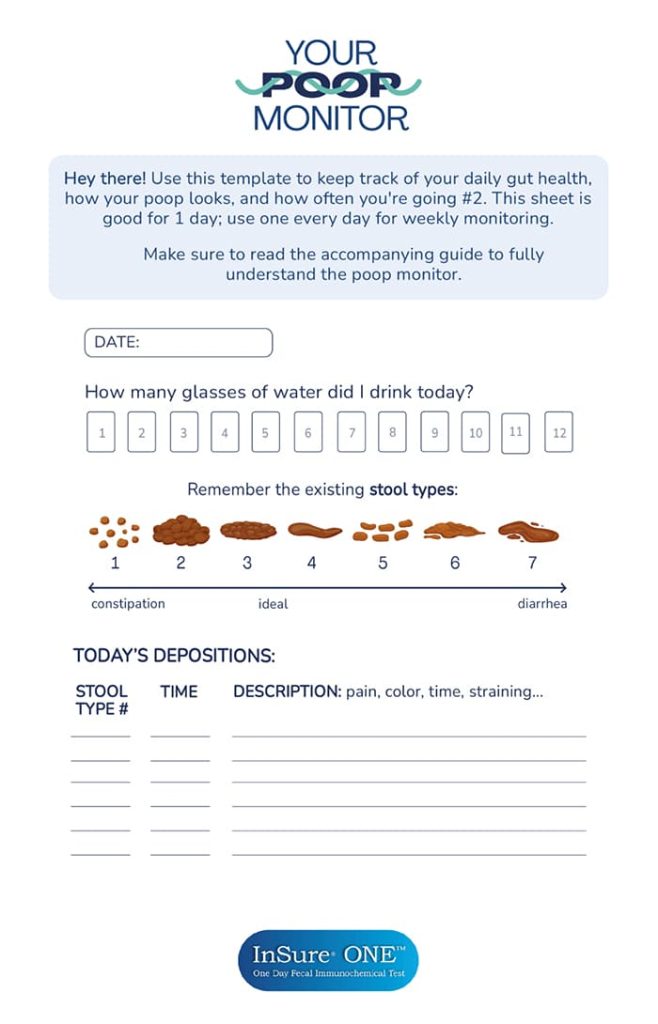Are you aware of the signs and symptoms of colorectal cancer?. They’re similar to most other conditions affecting the digestive system, which can make identifying the source challenging. To make it even harder, when the cancer is in its early stages, it may not even have any symptoms.
When symptoms are present, they generally occur because of sensitivity or obstruction of colorectal polyps. Polyps are growths in the tissue of the colon or rectum. When these polyps become cancerous and grow in size, they can bleed, hurt, and block stool.
Besides relying solely on symptoms to diagnose colorectal cancer, you should also be proactive and undergo regular screening. By remaining aware of the symptoms of colorectal cancer and combining it with regular screening, you can improve your chances of early detection and timely treatment.
What Are Colorectal Polyps?
Colorectal cancer is a disease where the cells in the colon or rectum grow uncontrollably, starting as polyps. If the polyps continue to grow, they may become cancerous.
Colorectal polyps are growths on the lining of the colon or rectum. Most of the time, they occur randomly, although some hereditary syndromes can cause colon polyps. Additionally, the older you are, the more common colorectal polyps become.
Polyps of the rectum and colon are most often benign. However, in some cases, they can become cancerous, with polyps that are 1 cm or larger having a higher likelihood of becoming cancerous.
The Signs And Symptoms Of Colorectal Cancer
The signs and symptoms of colorectal cancer generally result from the large, cancerous colorectal polyps interfering with the gastrointestinal system, producing symptoms such as:
Change in Bowel Habits:
This can mean going to the bathroom more often, less often, or having stools that are looser or harder than usual. It could also feel like you can’t completely empty your bowels even after going.
Blood in Your Stool:
This can be bright red streaks of blood on your stool (from bleeding lower in the rectum). Or dark red or tar-like stools (from bleeding higher up in the colon).
Constipation or Diarrhea:
Having constipation or diarrhea more often than usual, or going back and forth between the two, could be a sign of colorectal cancer.
Unexplained Weight Loss:
If you’re losing weight without trying, it’s important to see a doctor. This could be a sign of many things, including colorectal cancer.
Feeling Like Your Bowel Doesn’t Empty Completely:
Even after going to the bathroom, you might still feel like you haven’t completely emptied your bowels. This can be uncomfortable and is a good reason to see a doctor.
Abdominal Pain, Cramps, or Aches That Persist:
Pain in your belly that doesn’t go away after a few days or keeps coming back could be a sign of colorectal cancer.
Some Symptoms Are Connected:
For example, cancerous polyps might bleed more easily than noncancerous ones, leading to bleeding during bowel movements and possibly causing iron deficiency anemia.
If polyps grow large, they might block the bowel, causing abdominal pain, constipation, or a feeling of incomplete bowel emptying.
Changes in bowel habits, like diarrhea, could indicate colorectal cancer. This might be due to a tumor blocking the bowel or secreting fluid.
Weight loss can also be a sign of colorectal cancer. Cancer cells use a lot of energy, leading to weight loss as the body taps into fat stores for energy.
It’s Not Just Colorectal Cancer
While these above symptoms can be indicative of colorectal cancer, it’s important to note that they are also associated with other conditions, they don’t automatically mean that you have colorectal cancer.
If you experience any of the symptoms of colorectal cancer, reach out to your healthcare provider to discuss your symptoms and discuss if there is a need for imaging tests, such as a colonoscopy, to determine the cause of your symptoms.
The Importance Of Proactive Screening
While there are signs and symptoms of colorectal cancer, it’s important to remember that not all of these symptoms will manifest, especially if the cancer is in its early stages.
Even more, if these symptoms do appear, you may not know that it’s due to cancer. An analysis of over 5,000 individuals with early-onset colorectal cancer found that abdominal pain, rectal bleeding, diarrhea, and iron deficiency anemia were the symptoms most commonly reported in those who developed colorectal cancer, and these symptoms lasted between 3 months and 2 years before the cancer was diagnosed.
What does this data mean? It shows that the earliest signs of colorectal cancer can often go unnoticed, likely because they can be indicative of many other conditions.
When it comes to colorectal cancer symptoms, we know two things: early-stage colorectal cancer does not usually have symptoms, and the first symptoms are generally brushed aside as being from something else. Considering these two points, it becomes clear that regular screening for colorectal cancer is the key to working around the symptoms that are otherwise difficult to use for diagnosis, given their unreliability.
Screening is an effective tool when completed as a proactive measure. This way, colorectal cancer can be detected before symptoms set in, and you don’t have to try and decide if your symptoms are concerning or not.
There are many screening options available for colorectal cancer, including a colonoscopy, which allows a doctor to visually inspect your entire colon. For a simpler option, there’s a fecal immunochemical test (FIT), which can be completed at home. The FIT does not detect cancer but instead detects blood in the stool, which can indicate diseases such as colorectal cancer and other GI conditions.
To be proactive about your colorectal health, learn more about the InSure ONE Test today.
References
- Fritz, C. D. L., Otegbeye, E. E., Zong, X., Demb, J., Nickel, K. B., Olsen, M. A., Mutch, M., Davidson, N. O., Gupta, S., & Cao, Y. (2023). Red-flag signs and symptoms for earlier diagnosis of early-onset colorectal cancer. Journal of the National Cancer Institute, 115(8), 909–916. https://doi.org/10.1093/jnci/djad068
- InformedHealth.org [Internet]. Cologne, Germany: Institute for Quality and Efficiency in Health Care (IQWiG); 2006-. Signs of colorectal cancer. 2006 Feb 14 [Updated 2017 Jan 26]. Available from: https://www.ncbi.nlm.nih.gov/books/NBK279199/
- What Are the Symptoms of Colorectal Cancer? (2024). https://www.cdc.gov/cancer/colorectal/basic_info/symptoms.htm
- Jyala, A., Mehershahi, S., Shah, N., Shaikh, D. H., & Patel, H. (2021). McKittrick-Wheelock Syndrome: A Rare Cause of Chronic Diarrhea. Cureus, 13(2), e13308. https://doi.org/10.7759/cureus.13308

